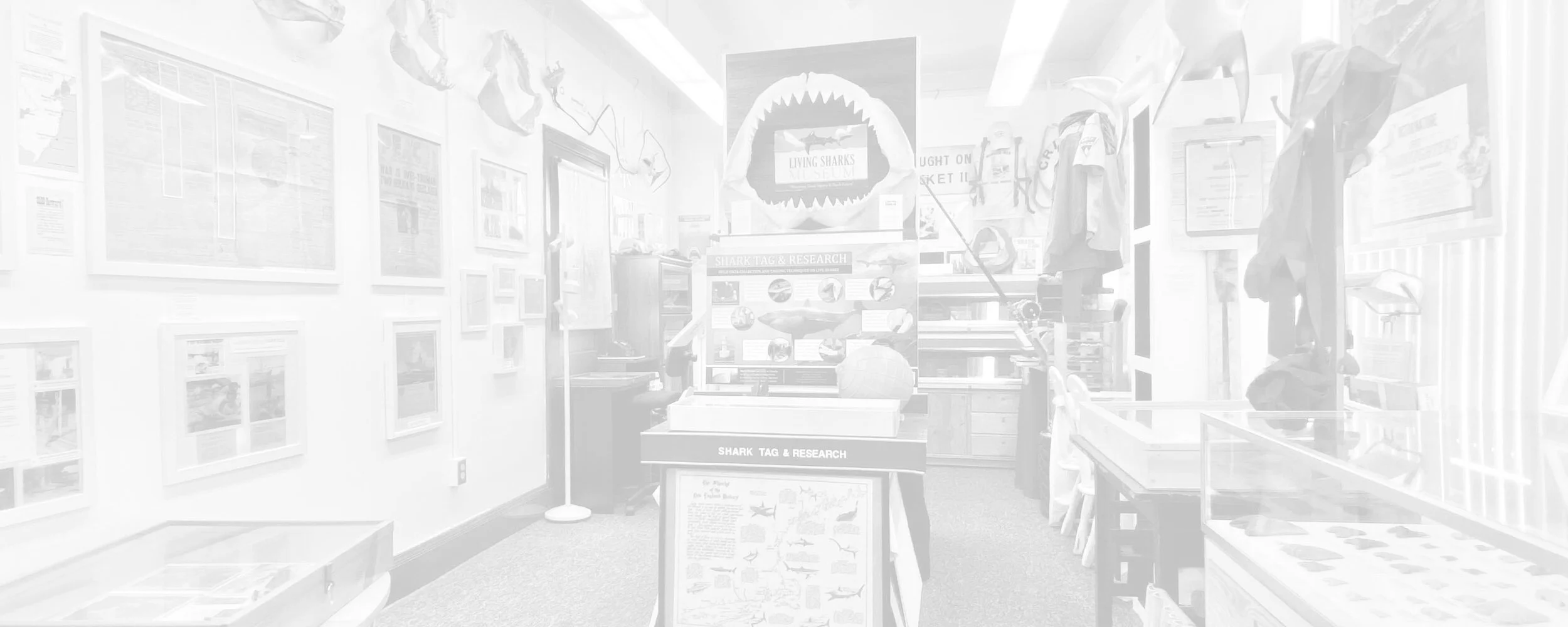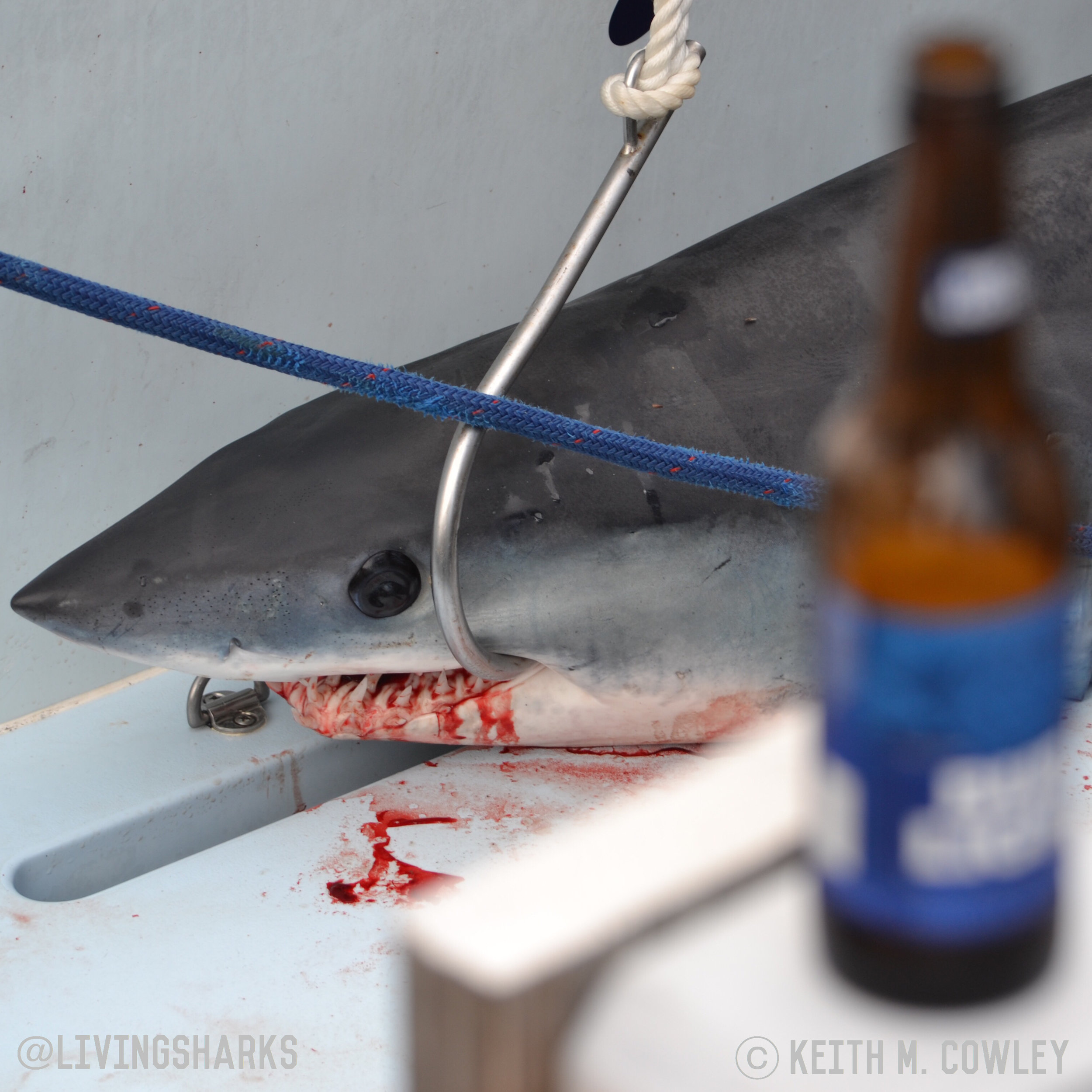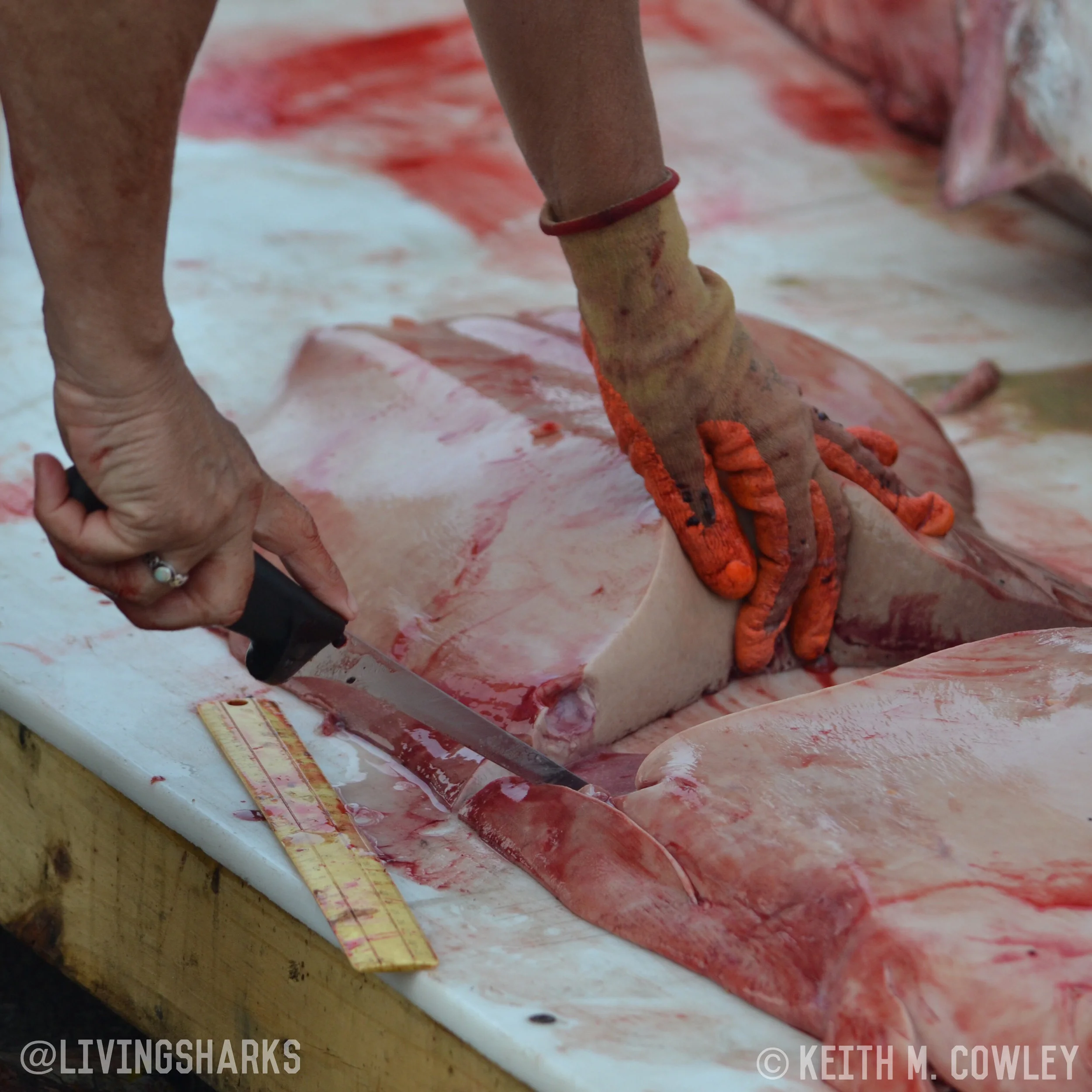LIVING SHARKS PROJECT
EDUCATION THROUGH CONSERVATION
Living Sharks Museum began initially as Living Sharks Project, an initiative to take action on observations made by Curator Keith Cowley after his five year stint working as a NOAA contractor taking data on shark tournaments, commercial and recreational take of HMS/LPS species including sharks. Since then he has spent over a decade keeping a close eye on New England tournaments and the ever-growing issues that plague sharks worldwide. This work evolved into a deeper passion project to better understand how sharks are researched, represented, utilized, exploited and protected. Living Sharks Museum has since became the platform to more accurately educate the public.
Warning - Graphic/SENSITIVE CONTENT Below
Imagery may depict shark fishing, dissection, and/or animal cruelty. No content, text, copy, or images on this website may be taken, utilized, cropped, redistributed or re-purposed without the expressed written permission of their owner, Keith Cowley & Living Sharks Museum. For inquiries, use our Contact Form.
Shark Tournament Monitoring
Shark Tournaments are gatherings during which fishermen compete to catch the largest of qualifying sharks. Legal in the United States, and still happening currently, tournaments are registered and approved through NOAA Fisheries which sets the regulations for the species that may be targeted for the year. Tournaments are often sponsored by local businesses and related organizations, though some are staked by large corporate sponsors which enable hefty award-winning potential. Winnings can range from a few hundred to tens of thousands to catch and kill sharks. Most tournaments are not well monitored and therefore rely on the honesty of their participants for what goes on at sea, and how their catches are treated back on land in view of the public.
Keith Cowley has monitored shark tournaments formally as a contractor for NOAA Fisheries and has spent over a decade working better understand the cultural attraction to their continued existence. As part of his conservation projects he sorts through the facts to better educate the public. While scientists appreciate the ability to access these sharks for research data, they are not always attended by marine scientists or fisheries contractors. Without the research these tournaments are trophy hunts that stroke egos and thicken wallets and do not benefit the shark.
Shark tournaments arose out of a time period when the largest game fish of the day (tuna and billfish) were low in population. Sharks were targeted indiscriminately, since at the time the perspective was “the only good shark is a dead shark”, especially post-Jaws 1975. Sharks were also not commonly consumed until recent times. In New England, Shortfin Mako Sharks, Thresher Sharks and Porbeagles were targeted for their edibility. Blue Sharks were caught and consumed as well by some, a species that urinates through its skin (they would soak the meat overnight in milk). We now know that shark meat is rich in heavy metals as sharks are bioaccumulators, consuming those below them like mackerels, tuna and billfish that retain the highest amounts of heavy metals from their diet and environment. Aside from the consumable species, many other tournaments still target non-consumable species.
Given that worldwide shark populations are taking a major hit (76-80 million sharks are killed each year, with 25 million noted as threatened species, see *Ref. 1.), shark tournaments are sending an unethical message to the communities that host them, and to the next generation. They nurture a disconnected view of a natural and necessary predator. Advocacy groups liken them to African lion hunts and other terrestrial big game hunts which would not be acceptable to hang dead in the streets, regardless of legal regulation allowances.
*Ref. 1. Global shark fishing mortality still rising despite widespread regulatory change
Images from Shark Tournaments
BLOCK ISLAND, RI
Photos by Keith M. Cowley, Curator
Living Sharks Museum - Use only with written permission.
Examples of Shark Tournaments
FAIRHAVEN, MA
Photos by Keith M. Cowley, Curator
Living Sharks Museum - Use only with written permission.
Facts & Notes
in regards to the Shark Tournament
on JULY 9th, 2022 Jupiter, Florida
@tannerunderwater
NOAA requires all tournaments for HMS species be registered and include permits from all boats in the tournament. All landings are required to be reported. | https://www.fisheries.noaa.gov/atlantic-highly-migratory-species/atlantic-highly-migratory-species-tournaments#tournament-registration
States set their own shark fishing regulations in compliance with NOAA regulations. The state of Florida FWC (Fish & Wildlife Commission) sets those limits and are as follows: 1 shark/person per day or 2 sharks per vessel per day. Some of these species have no limits on size, others like bull, blue, whitetip, porbeagle and thresher have to be 54” or longer (fork length) | https://myfwc.com/fishing/saltwater/recreational/sharks/
NOAA sets a catch quota in categories assessed by reported landing of sharks by permit holders. To hold a permit, shark landings are to be reported. Bull Sharks fall u set the category of Aggregated Large Coastal (ALC) Sharks. As of May 2022, 17% of the annual quota has been caught. | https://www.fisheries.noaa.gov/2022-atlantic-shark-commercial-fishery-landings-and-retention-limit-updates
No permit or license is required for recreational fishing in federal waters. Anglers are responsible for abiding by all federal and state fishing regulations and obtaining any state license required. | https://www.fisheries.noaa.gov/southeast/rules-and-regulations/current-fishing-regulations-south-atlantic
Species caught in Federal Waters may require proof of retention in Federal Waters (gps data, etc). This tournament organizer is aware of that and has verbalized those rules in the tournament FB forum.
Florida law 790.25 allows you to hunt, fish, and camp while open carrying your firearm. You are also technically allowed to open carry to and from these expeditions. That means if you are fishing on your boat, or traveling to or from the fishing area, you may open carry.
Prohibited in Florida: Shooting from vehicles, powerboats or sailboats moving under power. Motors must be shut off or sails furled, and progress must cease from such motor or sail before taking game.
In Florida, you are not required to tell the officers or Coast Guard personnel that you have firearms on your boat unless you are asked.
There is no requirement for observers on tournament vessels. Any data taken by NOAA, FWC or fisheries interviewers/data contractors is taken boatside at dock.
The FB group for the Warbird tournament claims that they plan to shoot and kill sharks and only return with the largest for tournament weigh-in. NOAA and FWC don’t take social media claims as evidence of illegal acts. Evidence would have to be provided in physical and substantiated.
There is no way to monitor these tournament vessels at sea short of following them out with a fleet of private boats and recording their actions to secure photographic evidence of crimes against wildlife. Activists in Jupiter who know some of these fishermen may already be organizing to pursue this method.
Protests, political outcry and social media pressure against sponsors and the towns supporting a tournament are ways activists raise awareness of these events. Sometimes this also emboldens the tournament organizers and fishermen, bringing more attention and enrollment to these otherwise quiet events.
The attempt to illegally eradicate predators could happen any day of fishing without public knowledge. Therein lies the issue with limited monitoring of vessel activities at sea.
NOAA/NMFS change regulations based on scientific evidence. The producing of proof of illegal actions can work as fuel to change regulations, policy and build a case against these kinds of activities to make change at the town and state level, as well as to inform event sponsors of what they are sponsoring.
Photo by c 2018 - Michael Lorello, off Misquamicut Rhode Island
Shark Fishing & Bycatch Monitoring
BYCATCH. “This was the same sad experience I had when I was working on a commercial fishing vessel. The first pull of the net was full to the brim with Dogfish. I’ll never forget seeing all those sharks mangled by the nets with their heads and bodies smashed out of the bag by the pressure of thousands of pounds. Bycatch refers to any species caught that were not the fishing vessel’s target fish, and this happens far more often than the public realizes. Even when all the bycatch is released as fast as possible, there’s still no guarantee of survival. The stress of the nets, the duration of time in the bag and on deck, (because of their denticles they stick to each other and all the other fish) and often being thrown without tremendous care back to the sea... While I’ve personally experienced surprisingly strong ethics on some of these boats, (most fishermen have not experienced this) it’s still time to change how we fish.” - Keith Cowley, Living Sharks Project
We are examining NOAA Fisheries most recent studies on bycatch and its effects on populations, and how to improve bycatch monitoring. Many fishermen tell us as fisheries surveyors, observers and monitors that there are plenty of fish, plenty of sharks. We want the data to match the claims so fishing regulations are fair for everyone.
Our campaign is #reportmorecatchmore Tag bycatch photos with this hashtag and help us find a functional data-driven scientific solution to the issue.







































